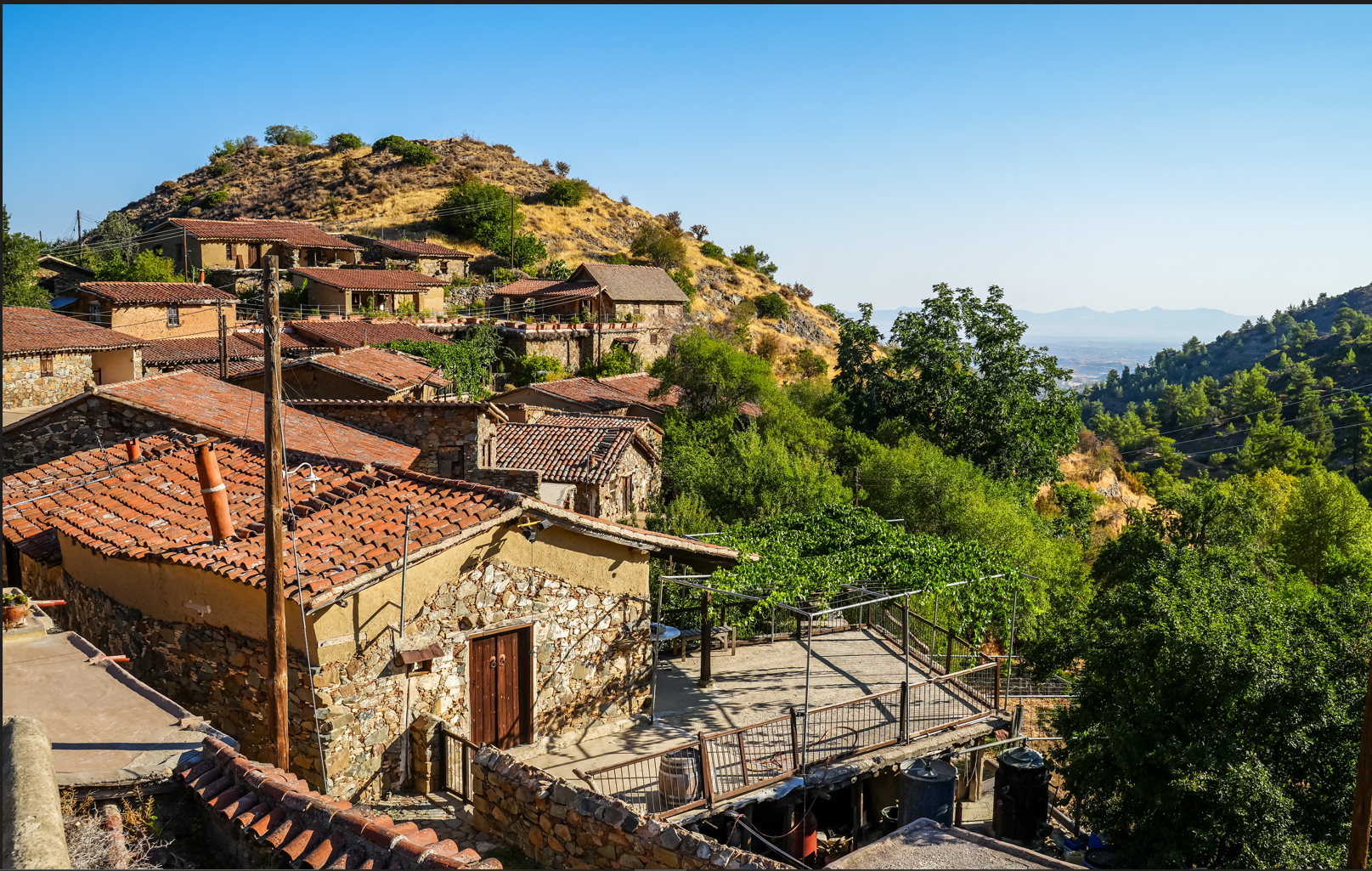Region: Fikardou
The traditional rural village of Fikardou in Cyprus
Fikardou is one of the few examples of a remarkable traditional settlement in Cyprus that has remained unspoiled over time and has managed to keep its architectural features and traditional way of life. It also presents a harmonious relationship between the built and the natural environment, enabling a perspective of cultural landscape. Today the entire village is a living museum and is on the Tentative List of UNESCO as a World Heritage Site.

Outstanding Universal Value
Brief synthesis
The village of Fikardou is a small, rural settlement built on the southeastern slopes of the Troodos Mountain range, about 32km southwest of Nicosia.
Historical elements
The village existed, as such, at least since the 18th century. The inhabitants of the village have always been engaged in animal husbandry and farming. The arable lands of the village are cultivated with vines, almonds, olives, cereals, and pulses.
The use of the genitive case in the name of the village suggests that it once belonged to a feudal family of the same name, and it correlates to an aristocratic family, that of Phicardo, based on various historical records of the 15th century. Aristocrat Messer Tomazo Phicardo was a feudal lord and notary of King James II during Frankish rule in Cyprus, and possibly owned the village, for a time, as a fief.
Decline
The trend of urbanization and abandonment of the countryside affected the village, which began to show signs of decay and decline. The dramatic decrease in the population of permanent residents of the village left many houses deserted and derelict and brought economic depression.
Capacity as an "Ancient Monument"
To protect the monuments, the architectural character and environment of Fikardou, in 1978 the Department of Antiquities declared the entire village as an “Ancient Monument” and a "Controlled Area". The Dept. fully restored (among others) two residences; the “Katsinioros Residence” and the “Achilleas Dimitri Residence”, that are outstanding examples of traditional architecture of 18th century Cyprus. In 1987, these two Houses were awarded the Europa Nostra International Award, and today they form the Fikardou Rural Museum. The village also features a beautiful 17th century church dedicated to Apostles Peter and Paul. Opposite the Church is the old School which operated until the mid-20th century but had to shut down after the desertion of the village. Today, it is used for various events, seminars, and experiential workshops. In the center of the village is the old Wine Press that was available to all villagers for the needs of spirit and winemaking which was the most prominent occupation and source of income of the inhabitants.
On the Tentative List of UNESCO World Heritage Sites
Fikardou is one of the few examples of a remarkable traditional settlement in Cyprus that has remained unspoiled over time and has managed to keep its architectural features and traditional way of life. It also presents a harmonious relationship between the built and the natural environment, enabling a perspective of cultural landscape. Today the entire village is a living museum and is on the Tentative List of UNESCO as a World Heritage Site, fullfilling Criteria (ii), (iii), (iv), (v).
 For Additional Information
For Additional Information